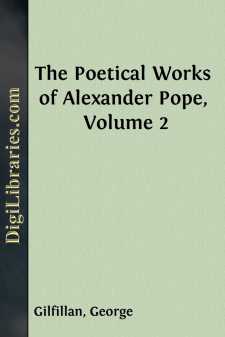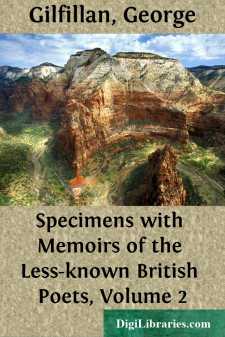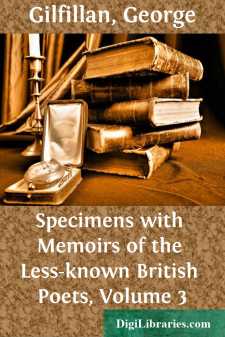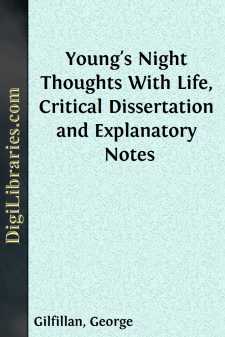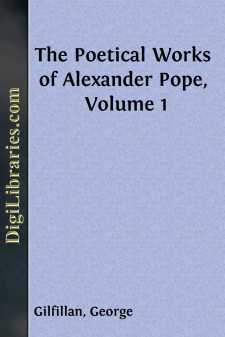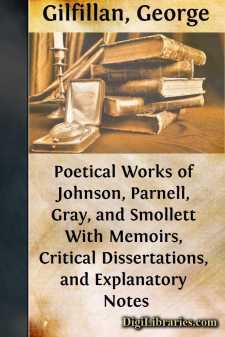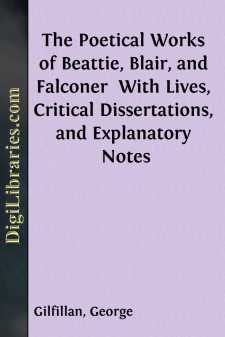Categories
- Antiques & Collectibles 13
- Architecture 36
- Art 48
- Bibles 22
- Biography & Autobiography 813
- Body, Mind & Spirit 142
- Business & Economics 28
- Children's Books 17
- Children's Fiction 14
- Computers 4
- Cooking 94
- Crafts & Hobbies 4
- Drama 346
- Education 46
- Family & Relationships 57
- Fiction 11829
- Games 19
- Gardening 17
- Health & Fitness 34
- History 1377
- House & Home 1
- Humor 147
- Juvenile Fiction 1873
- Juvenile Nonfiction 202
- Language Arts & Disciplines 88
- Law 16
- Literary Collections 686
- Literary Criticism 179
- Mathematics 13
- Medical 41
- Music 40
- Nature 179
- Non-Classifiable 1768
- Performing Arts 7
- Periodicals 1453
- Philosophy 64
- Photography 2
- Poetry 896
- Political Science 203
- Psychology 42
- Reference 154
- Religion 513
- Science 126
- Self-Help 84
- Social Science 81
- Sports & Recreation 34
- Study Aids 3
- Technology & Engineering 59
- Transportation 23
- Travel 463
- True Crime 29
The Poetical Works of Alexander Pope, Volume 2
by: George Gilfillan
Description:
Excerpt
THE GENIUS AND POETRY OF POPE.
Few poets during their lifetime have been at once so much admired and so much abused as Pope. Some writers, destined to oblivion in after-ages, have been loaded with laurels in their own time; while others, on whom Fame was one day to "wait like a menial," have gone to the grave neglected, if not decried and depreciated. But it was the fate of Pope to combine in his single experience the extremes of detraction and flattery—to have the sunshine of applause and the hail-storm of calumny mingled on his living head; while over his dead body, as over the body of Patroclus, there has raged a critical controversy, involving not merely his character as a man, but his claims as a poet. For this, unquestionably, there are some subordinate reasons. Pope's religious creed, his political connexions, his easy circumstances, his popularity with the upper classes, as well as his testy temper and malicious disposition, all tended to rouse against him, while he lived, a personal as well as public hostility, altogether irrespective of the mere merit or demerit of his poetry. "We cannot bear a Papist to be our principal bard," said one class. "No Tory for our translator of Homer," cried the zealous Whigs, "Poets should be poor, and Pope is independent," growled Grub Street. The ancients could not endure that a "poet should build an house, but this varlet has dug a grotto, and established a clandestine connexion between Parnassus and the Temple of Plutus." "Pope," said others, "is hand-in-glove with Lords Oxford and Bolingbroke, and it was never so seen before in any genuine child of genius." "He is a little ugly insect," cried another class; "can such a misbegotten brat be a favourite with the beautiful Apollo?" "He is as venomous and spiteful as he is small; never was so much of the 'essence of devil' packed into such a tiny compass," said another set; "and this, to be sure, is England's great poet!" Besides these personal objections, there were others of a more solid character. While all admitted the exquisite polish and terse language of Pope's compositions, many felt that they were too artificial—that they were often imitative—that they seldom displayed those qualities of original thought and sublime enthusiasm which had formed the chief characteristics of England's best bards, and were slow to rank the author of "Eloisa and Abelard," with the creator of "Hamlet," "Othello," and "Lear;" the author of the "Rape of the Lock" with the author of "Paradise Lost;" the author of the "Pastorals," with the author of the "Faery Queen;" and the author of the "Imitations of Horace," with the author of the "Canterbury Tales." On the one hand, Pope's ardent friends erred in classing him with or above these great old writers; and on the other, his enemies were thus provoked to thrust him too far down in the scale, and to deny him genius altogether. Since his death, his fame has continued to vibrate between extremes. Lord Byron and Lord Carlisle (the latter, in a lecture delivered in Leeds in December 1850, and published afterwards) have placed him ridiculously high; while Wordsworth, Coleridge, and Bowles, have underrated him....


